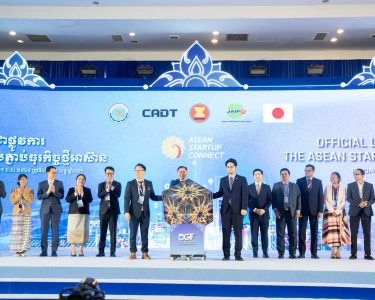Cambodia Investment Review
New report reveals deep insights into challenges facing hackathons, incubators, and accelerators
A new report from the Techo Startup Center, supported by the Ministry of Economy and Finance, sheds light on the pressing challenges Cambodian tech startup founders face in navigating key support mechanisms like hackathons, incubators, and accelerators. Titled “Tech Startup Founders’ Outlook in Cambodia 2025,” the report draws on in-depth interviews with 42 local founders and urges reforms to make support programs more effective, inclusive, and impactful.
Lack of Clarity, Quality, and Post-Program Support
Cambodia’s ambition to become an upper-middle-income country by 2030 and a high-income economy by 2050 hinges heavily on its digital sector, including early-stage tech ventures. But despite this policy push — supported by the Cambodia Digital Economy and Society Policy Framework 2021–2035 — many founders say they face unclear entry criteria, limited mentorship, and little continuity after programs end.
Read More: Opinion: Cambodia’s Startup Ecosystem – Challenges and Opportunities 2024
According to the report, more than 95% of startup founders received support from at least one entrepreneurial program, yet many encountered serious difficulties in accessibility, structure, and relevance. Common complaints included language barriers, irrelevant training modules, a lack of tailored mentorship, and minimal network-building opportunities post-program.
“Innovation is crucial for the digital economy’s growth, and supporting startups and their founders is essential for fostering this ecosystem,” the report notes, echoing earlier findings by Phong et al. (2022).

Accelerators Favored, but Still Flawed
Among the three support types, accelerators were the most utilized, with 32 of the 42 founders having joined one over the past three years. They were generally viewed as more comprehensive and useful than hackathons or incubators, offering key resources like branding support, pitch coaching, and potential investor linkages.
However, issues still surfaced. Founders cited unclear judging criteria, insufficiently experienced mentors, and scheduling difficulties. One participant described the programs as “high effort but low outcome” without clear support pathways after graduation.
Meanwhile, incubators and hackathons received lower participation rates and faced more structural criticism. Only 14 startups had joined hackathons in the last three years, mainly due to confusing or poorly distributed announcements and overly rigid formats.
Key barriers included:
- Irrelevant or generalized content
- Heavy in-person training loads
- Fast-paced programming with little flexibility
- Unclear evaluation criteria
- Lack of continuity or alumni engagement

Who Participated?
The research sample consisted of 42 tech startup founders, with an average age of 31 (ranging from 19 to 46 years old), and included 28 women. Most held bachelor’s degrees in computer science or business. The startups came from diverse sectors — Development Services (8 startups), FinTech (6), AgTech (6), EdTech (6), and E-Commerce & Logistics (4).
Business models were predominantly Business-to-Consumer (B2C), and most startups were founded by small teams — often two co-founders — in early or operational stages.
Recommendations for the Ecosystem
The report ends with a set of targeted recommendations for both startup founders and program organizers.
For founders:
- Take initiative in finding programs aligned with their goals
- Be clear on eligibility and expected time commitments
- Engage not just for funding but for learning and resilience
For organizers:
- Clearly communicate program goals, timelines, and judging criteria
- Provide bilingual content and high-quality, experienced mentors
- Ensure ongoing support post-program, especially for startups outside Phnom Penh
In his foreword, H.E. Dr. Taing Nguonly, Executive Director of the Techo Startup Center, emphasized the need for a multi-sectoral approach, calling on the private sector, government, and academia to collaborate on scaling startup support across Cambodia.
“Rather than focusing solely on rewards, these programs must prioritize learning and long-term growth,” Dr. Taing wrote. “This report serves as a catalyst to spark dialogue and prompt actions.”

Looking Ahead
The release of this report is timely, as Cambodia accelerates its shift to a digital-first economy. With its youth-driven startup base and emerging tech hubs, the Kingdom stands to benefit greatly — if the right structures are put in place.
The findings are expected to influence ongoing policy discussions around digital entrepreneurship and will likely inform future programs at the Techo Startup Center and beyond.
Read the full report: Techo Startup Center





